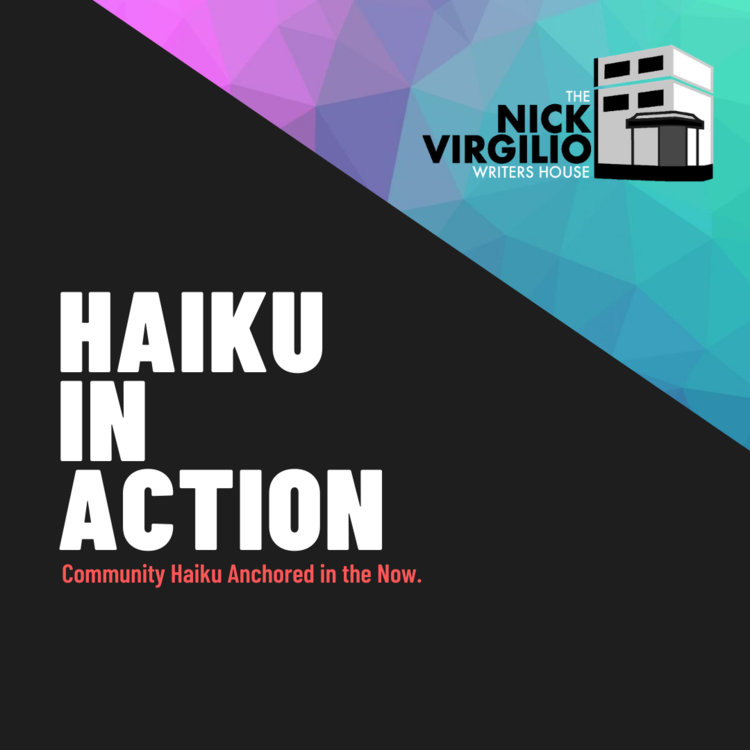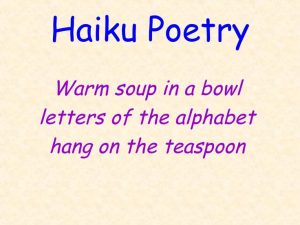
Timeline Of Nick’s Life In Poetry
There are poets and visionaries—souls who write to reveal the truth hidden in the ordinary,
Check out our store for the latest sales and promotions

With the rapid pace of the events of our times, it has never been more important to share your perspective. What better form than haiku to get a snapshot of your thoughts and experiences!
Send us your haiku/senryu poems taken from the news of the week and observations of life in 2020. Whether snapshots from daily events, marches, quiet moments in quarantine or Zoom meeting frustrations, we want all your short poems anchored in the NOW. All are encouraged to submit. Submissions with racist, homophobic, sexist, transphobic or other hate speech will not be considered.
The best will be showcased weekly here and or all of our social media platforms, along with links to your media. The BEST of the best will be compiled into an anthology of haiku published by Nick Virgilio Haiku Association’s imprint Upright Remington Press.
Submissions close on Monday of each week. Prompts are posted on Tuesday. The weeks featured 8 haiku are posted on Thursday.
To submit, please fill out our form here. Submit a MAXIMUM of three haiku. Please consider a donation of $1 -5 per entry to support this and other NVWH programming.
What is a Haiku poem in English today?
Haiku is a short form poem that often has these characteristics
What is a Haiku poem in English today?
Haiku is a short form poem that often has these characteristics:
Spare, lean: no extra superfluous words
Not rhyming
The words are images, not description of images
Without metaphor and simile
Often divided into two sections – that expose two subjects (example: something natural and something human-made, two unexpectedly similar things)
Senryu is short form poetry resembling haiku that deals with human nature. Unlike haiku it is sometimes humorous and may contain metaphor and simile.
For many years, haiku in English was taught as a three-line format with 17 syllables sometimes arranged in a 5–7–5 pattern.
Today, haiku in English is better described as a one-breath poem – a short verse of about 10 to 14 syllables, with the second line usually the longest. Typically, haiku poems have little or no punctuation or capitalization, but may mark poem turning points with dashes or ellipses, and proper nouns are usually capitalized.
Here are some examples from the writing of Nick Virgilio of Camden:
sixteenth autumn since:
the barely visible grease marks
where he parked his car
telegram in hand
the shadow of the marine
darkens our screen door
beneath the coffin
at the edge of the open grave:
the crushed young grass
boarding the wrong bus: the heat
the funeral Mass:
in the holy water font
confetti and rice
Thanksgiving dinner:
placing the baby’s high chair
in the empty space
For more about haiku, check out the definition on Graceguts.com, and here are some resources for Teaching Haiku in Junior HIgh and Educational Resources for Haiku. And there is an excellent workshop on writing haiku here with Michael Dylan Welch.

There are poets and visionaries—souls who write to reveal the truth hidden in the ordinary,

New Jersey’s Camden. A city that had been a titan of shipbuilding and industry, more

Words that will reverberate over time were once written by a quiet voice amid the
Copyright © 2025 Nick VIrgilio Haiku Association. All rights reserved.

Alfred taught English to junior and senior high school students in New Jersey and Massachusetts prior to working for the municipal government of the City of Camden, New Jersey. He began working with the City of Camden Department of Planning & Development, Division of Housing Services, as a Cost Estimator for Property Improvement in 1984.
He spent the next thirty-eight years working in both the Division of Housing Services, and the Finance Department Bureau of Grants Management, helping the City administer state and federally funded affordable housing projects in Camden.
Alfred spent ten years working with the Bureau of Grants Management, where he reviewed and evaluated grant applications and proposals for funding from non-profit and for- profit housing developers. These agencies included St. Joseph’s Carpenter Society, Heart of Camden, Camden County OEO, Habitat for Humanity,
Camden Lutheran Housing, RPM Development and others. He also worked with social service agencies such as Dooley House, Respond Inc., Sikora House, Center for Family Services, and Volunteers of America, that applied for grant funding.
He also played a significant role in the planning and implementation of the Annual Consolidated Plan grant application submitted to the Department of Housing and Urban Development each year. The Bureau holds an annual grant funding seminar along with public meetings and technical assistance sessions concerning the C-Plan.
Working for the City of Camden Division of Housing Services Alfred also served as the coordinator of the federal funded HOPWA housing Program for 14 years.
HOPWA funds provided safe, affordable, secure, housing for persons with HIV/AIDS, by issuing housing vouchers to their participants. He managed the delivery of services to 80-90 clients a year, covering Camden, Burlington and Gloucester counties.
During his time working for the City of Camden Mr. Dansbury was a member of the CPAC Homeless Network Planning Committee, the Local Law Enforcement Block Grant Advisory Committee and United Neighbors of Whitman Park.
Outside of his work with the City of Camden, Alfred worked as an Adjunct Instructor of Reading Skills and Writing Skills at Camden County College, teaching at both the Camden and Blackwood campuses. In 2022 Alfred published,
“The Strength of Courage” a novel he embarked on as a graduate student in Rowan University’s M.A. in Writing program in 2014-2018.
He earned a Bachelor of Arts in English and Journalism from Rutgers University, a Master’s of Arts degree in Business Administration from Eastern University, a Master’s of Arts in Education from Eastern Michigan University and a Master’s of Arts in Writing from Rowan University.